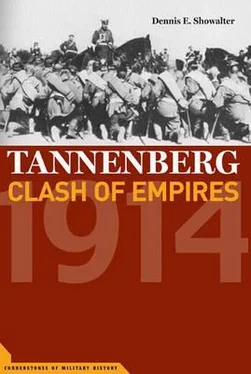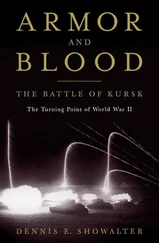Germany’s military position hardly inspired adventurism in its new chancellor. Theobald von Bethmann-Hollweg, who succeeded Bülow in July, 1909, assumed office in the context of Weltpolitik’s relative failure. Bülow had ultimately been unable to use global diplomacy to enhance Germany’s continental position. Whatever might be the imperial root causes of Britain’s commitments to her entente partners, the Anglo-German naval race had assumed a life of its own, poisoning relations between the two powers at all levels. The annexation crisis had generated increasing awareness that the continent could not any longer be safely neglected for the globe. Not only might future unrest in the Balkans spark a general war; Germany faced that prospect in a state of isolation. Encirclement, Einkreisung, began appearing more and more frequently alike in the public press and in official documents as a description of Germany’s condition.
Bethmann’s appointment marked the beginning of a return to a European approach to foreign policy. Bülow’s hopes of a British alliance had proved illusory. Now, influenced by Britain’s constant assertions that it maintained a “free hand” in European politics, the chancellor sought an exchange. British neutrality in any future continental war would be traded for limits on German naval construction. 22Bethmann constantly encouraged his London representative to stress the openness of German offers in this area and German receptivity to any counterproposals. 23At the same time he proposed to assert Germany’s independence from Austria—not least because of Aehrenthal’s continuing “gentle undertone” that the Habsburg Empire wanted to maintain a free hand in her dealings with Russia. 24
Bethmann took particular notice when in September, 1910, Sergei Sazonov succeeded Izvolsky in the Russian foreign office. Sazonov, like his predecessor, was Russocentric, “a Russian of the genuine Moscow breed,” as one German diplomat described him. He had been no happier than Izvolsky over the outcome of the annexation crisis, yet he had no desire to see Russia drawn into a committed anti-German network. For months before his appointment other voices in St. Petersburg had been asking whether Russia’s estrangement from Germany was not a mistake. Had not Russia after all escaped with honor from a dead end in the Bosnian affair by following German advice? 25
Sazonov did not have to accept the argument to perceive its utility. At least it offered an opportunity to signal Russia’s entente partners that the tsar’s empire must not be taken for granted. Bethmann for his part had been rapidly stalemated in his approaches to Britain, garnering little more than the overt hostility of domestic moralists and Weltpolitiker. Britain’s hands seemed free only to continue existing relations with France and Russia. Perhaps the way to London might be through St. Petersburg. If Russia broke ranks, Britain in turn might decide that a positive German connection was after all the best guarantee of her position in India and the Middle East.
It is a paradox that many of the same scholars who evaluate the pre-1914 alliance systems in general as poisonous medicine express what amounts to moral outrage at Germany’s alleged efforts to “break” the Triple Entente after 1909. Great-power relations are seldom set in concrete, and in November, 1910, Bethmann and Sazonov successfully bear-led their respective and reluctant emperors through two days of conferences in Potsdam and Berlin. Russia withdrew opposition to Germany’s long-cherished Berlin-to-Bagdad railway project in return for acceptance of a Russian sphere of influence in northern Persia. Closer to home, the two states agreed to pursue a policy of status quo and peaceful development in the Balkans, with Germany acting as mediator of any conflicts that Russia and Austria could not solve by direct negotiations. Bethmann assured Sazonov that Austria had no expansionist designs in that region, and had never asked Germany to support such designs. Sazonov for his part responded that no matter how he might strive for improved relations with Britain, Russia would never become part of a hostile combination directed against Germany.
Initial hopes were high. Aehrenthal said that as long as Russia remained “correct,” the new orientation of her policies could only be greeted with joy. The Russian ambassador in Vienna spoke of new persons and new combinations on the horizon. Yet dreams faded quickly. Germany’s investors were increasingly timid, her bureaucratized bankers unwilling to take risks without gilt-edged government guarantees. Her financial market could not match France in generating the capital still so important for Russia’s economy. Russia’s generals were reluctant to break a generation’s habits in strategic planning. Russia’s foreign office was correspondingly reluctant to commit itself to anything beyond comfortable generalizations. Bethmann offered drafts of the agreements and declarations, only to be met by the statement that verbal assurances made written ones unnecessary. Did not William trust the word of his imperial cousin? 26
Not until August, 1911, was the document signed, and by then it had lost much of its value for a German government increasingly despairing of balancing Russia’s words and Russia’s policies. A paradigm of the confusion was the general staff report of February 21, 1911, on major changes in the Russian army during 1910. The army’s peace strength was ostensibly unchanged, yet its order of battle had been increased by six corps headquarters and seven new divisions, most of them formed by converting reserve cadres and fortress garrisons to field troops. This enhanced immediate readiness for war at some expense to staying power. Several divisions had been also transferred from Russia’s western frontier to the Volga region. This lessened the strain on the mobilization and replacement systems. It also gave Russia a strategic reserve, invulnerable to any threat and able to be deployed quickly against either Germany or Austria along the railway network the empire was steadily in the process of improving. And, a possible straw in the wind, Russian maneuvers were becoming virtually impossible to observe as traditional professional courtesies gave way to systematic suspicion. 27
Russia’s capabilities to wage war seemed to be exponentially improving. What of her intentions? Malice or disorganization, a desire to lead Germany by the nose, an inability to coordinate decision making—the motives behind St. Petersburg’s mixed signals seemed less and less important. Alfred von Kiderlin-Wächter was only the most coherent voice in the foreign office arguing for the particular necessity of speaking plainly and bluntly to Russia in times of crisis. Euphemisms and circumlocutions, not to say normal diplomatic good manners, lent themselves too readily to misinterpretation in the hothouse atmosphere of St. Petersburg. The question for Kiderlin, as for an increasing number of German diplomats and soldiers, was how far Russia’s entente partners would be willing to underwrite Russia’s behavior. 28
German anxieties were further enhanced by Stolypin’s assassination in September, 1911. Stolypin, Russia’s premier since 1906, was no particular admirer of Germany. He had, however, accepted policies of peace and rapprochement as preconditions for the domestic reforms he considered necessary for the empire’s survival. As much to the point, Stolypin tended to equate nationalist enthusiasms anywhere in Europe with revolutionary idealism, regarding them as dangerous, disruptive factors. His successor, V. N. Kokovtzov, was also convinced that Russia’s vital interests demanded peace. He did not, however, have anything like Stolypin’s influence over the tsar, the war ministry, or the foreign office—and least of all over a Duma and a journalistic community that had responded to the Potsdam negotiations with unconcealed and massive hostility. 29
Читать дальше












